In the year 31 BC, Augustus Caesar declared himself Emperor and the Roman Empire was born. It extended all the way to the year 1453 when Constantinople finally fell and the Empire was over. That’s a good run by anyone’s standards. But with nearly 1,500 years of history, there’s been plenty of opportunities for myths and misconceptions to grow.
10. No One Knows Caesar’s Last Words
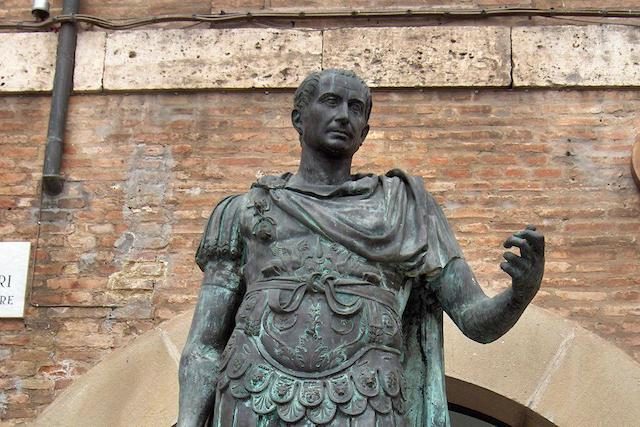
Chances are if you’re an English major you’re well aware of Julius Caesar’s last words “Et tu, Brute?” The problem is, those were the last words as written by William Shakespeare in his play about Julius Caesar. And Shakespeare definitely wasn’t around when Caesar died.
It’s generally agreed that the Shakespeare quote was in no way what Caesar actually said before he died. And while some believe Caesar’s last words were “Kai su, teknon?” or “You too, my child?” The fact is that that can be easily disputed as well. According to Plutarch, Caesar said nothing as he died, he merely pulled his toga over his head to cover his face.
9. There Were No Vomitoriums

There’s been a pervasive belief in modern culture that the Roman Empire was one characterized by every kind of excess you can imagine. In some ways the Empire has been used as a cautionary tale to keep morality because when you give in to your baser instincts, it guarantees your culture to fall. History doesn’t necessarily bear that out, however.
For instance, one of the more damning beliefs about Roman culture was that they frequented establishments known as vomitoriums. Gluttonous Romans would eat their fill at extravagant banquets until they literally burst, vomiting into some kind of receptacle or hole in the floor before going back to eating even more. It was the absolute height of a greedy and disgusting decadence.
The problem with this belief is that there were no vomitoriums in ancient Rome, and the word doesn’t mean what we think it means in the present. 5th Century historians use the word vomitorium to describe the entrance to massive Roman stadiums because of the way they would allow huge crowds to spew out into the street. It had nothing to do with food at all.
8. Orgies were Uncommon

Alongside vomitoriums, the other hedonistic excess that is often associated with Roman culture is the orgy. The belief that Romans would engage in excessive consumption of wine and food and then throw all decency to the wind and engage in Olympic-level sexual escapades has been around for centuries now.
The thing is, according to historical scholars like Alastair Blanchard, this is not rooted in much reality. Were there orgies at the time? Sure, just like there are now. But they were not everyday, commonplace activities that everyone engaged in.
It was the fascination that later eras had with the very idea that this might be happening that made it such a prevalent belief. The moralistic shock and awe that average citizens would feel upon hearing that the Romans engaged in such despicable behavior allowed the belief to proliferate.
According to Blanchard, there have been more orgies and movies about ancient Rome than there actually were in ancient Rome itself. It’s his contention that if ancient Romans could read half of the things we believe about them today, they would be utterly mortified.
7. Cleopatra Wasn’t Egyptian
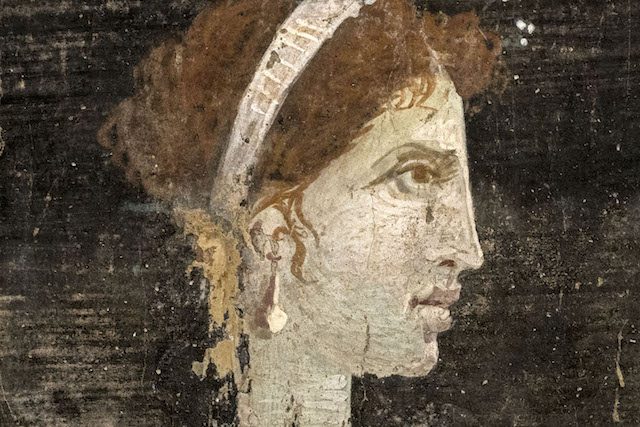
Although no one ever claimed that Cleopatra was a Roman herself, her place in history is forever tied to the Empire. And while nobody likely thinks she was Roman, certainly everyone knows she was Egyptian. Except, despite being the Queen of Egypt, she was not Egyptian.
In modern times there’s been some debate over the cultural and ethnic heritage of one of the most famous women in history. There are some who believe that she might have been African, but there is ample evidence to suggest that she was a Greek Macedonian.
After the death of Alexander the Great, one of his generals, Ptolemy, took control of Egypt. Cleopatra descended from him and stands out as the first of his line who actually took the time to learn the Egyptian language. Before her, the rulers of Egypt had all been Greek-speaking for three centuries.
6. Julius Caesar Technically Was not the First Emperor
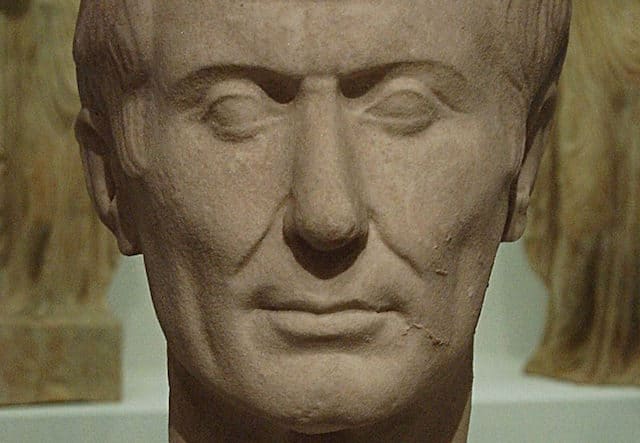
The word Caesar can actually refer to either the man or the title. Roman emperors were known as Caesars, even though Julius Caesar was the first to use that title. However, Julius Caesar was not the first emperor of the Roman Empire because the Roman Empire didn’t exist until after Julius Caesar essentially destroyed the Roman Republic.
The first emperor of Rome was actually Augustus Caesar, not Julius Caesar. Augustus Caesar’s real name was Gaius Octavius. Julius Caesar had been Augustus Caesar’s great-uncle and Augustus took over after Julius Caesar died.
Augustus Caesar had to overhaul the entire Roman way of life and in doing so gave rise to the Roman Empire, creating a lasting society that spanned centuries from the ruins of what his uncle had left behind
5. Togas Were Not Worn All the Time
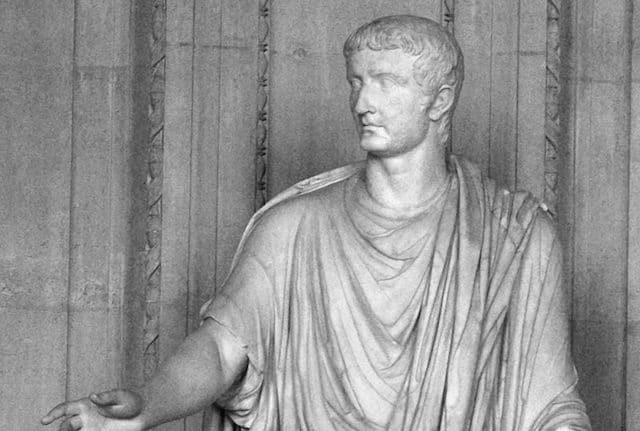
Watch enough period pieces that take place during the Roman Empire, and the one common thread that pops up is the actual threads that everyone had in common. If Hollywood is to be believed, everyone in Ancient Rome was walking around wearing a bedsheet all the time. Or, to be more accurate, a toga.
Togas were definitely a part of Roman fashion, but not nearly to the degree that films would have us believe. Remember, the Roman Empire lasted for centuries. The idea that people wore togas the entire time is as probable as assuming everyone in the last century walked around wearing those MC Hammer pants that were popular for about one year of the 1990s.
Even in ancient Rome, fashion trends shifted and evolved. They often considered togas formal wear, and if you were part of the senate, for instance, you would wear a toga with a purple stripe to show your station. It was the kind of thing you’d wear out to a fancy occasion like a wedding or even to the Coliseum to see a game.
Wearing of the toga gave way to the tunic in later years, and even prior to that most people would wear a tunic under a toga, anyway. If you were working, if you were out in the fields, if he were travelling, all of these reasons made wearing a toga impractical, and so no one really did it during many circumstances. You can consider it like the modern-day equivalent of a suit and tie. Some jobs require you to wear them as do some occasions, but you wouldn’t wear it all the time.
4. Nero Didn’t Play Fiddle

No one likes a politician who abdicates their responsibilities while the people that they represent suffer. In history, the most famous example of this is the Emperor Nero. He was the fifth Roman Emperor and is considered to have been tyrannical and somewhat monstrous. It’s for that reason that he is most strongly associated with playing the fiddle while Rome burned.
It was in the year 64 that a massive fire ravaged the streets of Rome and destroyed around 70% of the city. It burned for six days and it left half the city homeless as a result. Saying that Nero played the fiddle while Rome burned means that not only did he not care about his people, he had no idea how to handle a crisis.
As far as the literal interpretation of the story goes, it’s 100% impossible if for no other reason than the fiddle wasn’t even invented yet. It’s also believed that Nero was at his home in Antium, 35 miles away from Rome, when the fire broke out to begin with.
According to historians, Nero actually returned to Rome right away when he learned of the fire and implemented measures to try to combat it. However, Nero was incredibly unpopular and some people believe he started the fire in the first place. It’s worth remembering that he actually killed his own mother because she wouldn’t stop trying to take control of his decisions after he became Emperor, so the people had reason to be skeptical of him. But as for fiddling? Didn’t happen.
3. Cesareans Were Not Named for Julius Caesar

It’s curious how many things in the modern world still have the name Caesar after all this time. There are few other historical figures that have such a diverse resume when it comes to things being named for them. The Caesar drink, Caesar’s Palace in Las Vegas, and of course the cesarean section. Except one of these things is not like the others. Cesarean sections, despite popular belief, were not named for Julius Caesar.
As the popular story goes, Julius Caesar was the first child to be born by what is now known as a cesarean section, and that is where the name comes from. But that’s just not true. In fact, the word cesarean comes from the Latin word caedare which means “to cut.” The procedure was being performed before the birth of Julius Caesar, and, if anything, according to Pliny the Elder Julius Caesar was actually named after the cesarean section and not the other way around. Pliny said that one of Caesar’s ancestors was the first to be born by cesarean section and that is where the name originated in his family.
2. Caligula’s Horse Never Held Office

Rome certainly had a number of memorable Emperors during its time, and few were as infamous as Caligula. Today his name is synonymous with depravity, debauchery, and nightmarish excess. The stories about Caligula are almost hard to believe, and the movie that was made about his life ended up being x-rated back in the day, so that’ll give you some idea about what kind of life this Emperor supposedly led.
Through the lens of history it’s almost impossible to separate fact from fiction, but there are some stories about Caligula that seem to definitely be based in something other than reality. Such as the idea that he appointed his horse to political office.
It’s hard to say whether Caligula was just a monster, if he was mentally ill, or if history just horribly misremembered him and painted him as a villain. In any event, one of the most famous stories about him is that his horse Incitatus was so beloved and spoiled by the emperor that it had a luxurious marble stall, jeweled collars, and even its own slaves.
The historian Cassius Dio said that servants fed the horse oats that were mixed with gold flake. And Suetonius said that Caligula had plans to make the horse a consul.
Other historians are skeptical of these reports because both Dio and Suetonius lived years after Caligula was no longer emperor. Their reports could have been heavily based on the rumors and lies that spread around at the time, or they could have just made them up themselves.
In partial support this idea is the fact that had Caligula truly been as awful as history has painted him to be, it seems unlikely that anyone else in the Roman government would have allowed him to continue without deposing him or assassinating him outright.
1. Gladiator Fights Were Not Always to the Death
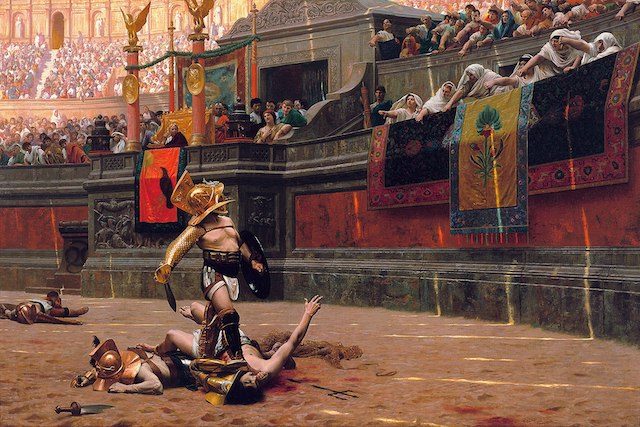
You can make a good argument that the aspect of Roman life that people in the modern age are most familiar with our Gladiator fights. Thanks to a strong Hollywood history of sword and sandal films throughout the 50s and into the present, the idea that ancient Rome was filled with gladiatorial combat is one thing we’re all pretty sure of. But you can never trust Hollywood to get all the details right, and as it turns out, many of those gladiator fights we’re not quite as brutal as you might think.
The fact is that a gladiator was an investment. Someone had to pay the train the gladiators, many of whom were slaves to begin with. They needed to be housed, fed, and transported from one place to another for combat. If you put in that much effort just to have the gladiator die at the end, what would be the point?
Now obviously some gladiators did die in the arena and the crowd did have a bit of a blood lust. But the idea that every bout had to end with one combatant living and one corpse was just not true.
It was in everyone’s best interests to keep gladiators alive as long as possible from the gladiators themselves all the way up to the men who trained and essentially owned them, the crowds, and even the emperor. If you kept running out of gladiators, then the people wouldn’t be entertained.